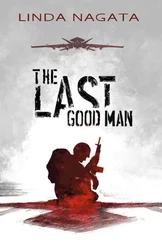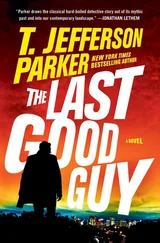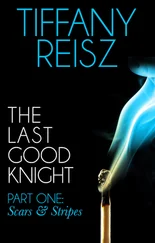In a daze, he looked over at Richard, who had saved his life. This last week he had hardly talked to the guy, although Wende and he had grown thick as thieves. But now that they were alone together, Dex realized he missed being around his band, around other dudes. Loren wasn’t the hanging-around type, and Cooked was always busy.
“Compadre!” Dex leaned over and hugged him.
“You okay?” Richard squeaked, the strength of Dex’s vise-hug emptying the air out of his lungs.
With his thin, ropy arms and legs, his dyed-black hair sticking up at all angles, the black-and-blue bruiselike effect of his tattoos, Dex didn’t look healthy in daylight.
“I’m glad you were here for this.”
“Me, too. That a new song you’re singing?”
Dex shook his head. “A chant from the Tibetan Book of the Dead. The Great Liberation Through Hearing in the Bardo.”
They both watched the last ball of paper crumble up and turn black.
“You feel like playing some volleyball?” Richard asked.
“Sounds good.” Dex stood up and dusted off sand. “I’ll herbalista us up some smoke.”
“Okay,” Richard said.
“That’s my man! Let’s doade.”
* * *
When Dex started playing in the early ’80s, it had been fun. He played lead guitar and performed vocals at every dive in LA, joined any band that would have him, traveled around the country broke and high, and loved every single swarmy last minute of it. He was already a seasoned journeyman musician when Prospero came together in Robby’s garage. The band members found themselves with a hit single nine months later and then came the record contract. It had never let up since.
All the attendant ills of the business hadn’t really affected Dex because he’d already been around long enough to be inured to them. His refuge was the music, playing it, writing it, recording it. The perks of the lifestyle were … interesting. It was crazy to land in a town and a few hours later have prime women willing to bed you. That very availability, combined with the boredom of the road, made short-term relationships easy. Women used him for their bucket lists. Did a rock star: check. Long-term relationships, on the other hand, were next to impossible, which didn’t prevent him from marrying a few of these women — among them Robby’s sister, a compound disaster when Robby then caught Dex cheating on her while on the road. A few of the wives thought they could outsmart the business by touring with the band, but the relentlessness of touring and the endless supply of those bucket-list women eventually wore them down. Dex survived because he was nurtured by the music. Each time onstage energized him. Until recently.
The band was like family. Dex’s closest relationships were with its members, but over the years strains began to show. Usually it was a band member’s perception that he wasn’t getting his due. He would talk of going on his own. Girlfriends fed the fire; wives threw gasoline on it. The music went from being a pure thing to just a way of paying bills. That was getting more difficult, too. Robby, an accounting major before he dropped out of USC to join the band, had gone over the books and found that they were earning less on each album, less on each tour.
“Maybe we’ve peaked,” he said. “Ten years ago. And no one told us.”
Dex was, as usual, so buried in writing songs for their current album he hardly registered Robby’s concern. “We’re still earning fine.”
“Don’t you notice at concerts, they always want us to play ‘best of’?”
“It’s just a natural cycle.”
“Yeah, downward. We’re jumping the shark.”
But what if that was part of the cycle of progression? Dex now wondered. You couldn’t stay at the top of the mountain forever — newer, younger bands were constantly coming up. Maybe one had to resign oneself to the fact that eventually everything — countries, governments, houses, lovers, bands — begins a long, inevitable slide toward obsolescence, which made it no less lovable to those who had been along for the ride. Otherwise, why did Aerosmith still tour?
Even though the groupies were still fine backstage and at the hotels (notwithstanding that he himself didn’t partake as regularly as he used to — he needed sleep, had to finish a song, or just wanted to veg out and watch the play-offs), when he looked out at the first row or two at concerts (all you could see with the glaring lights), he was confronted by a sea of middle age. Thickening waists, guys with gray hair or none at all. The women were still beauties, but they weren’t hot teenagers anymore: they were the mothers of those teenagers. Maybe some of those very teenagers had been conceived while listening to Prospero songs. The circularity made Dex dizzy. He then had the mortifying thought that those middle-aged people in the audience were his age — or, rather, he was their age, and if they had aged gracefully, if they looked fulfilled and happy grooving out there in the audience to music they remembered from their youth, then wasn’t Dex the one who was age-inappropriate? He was still living like a teenager, albeit a rich, indulged one. What was age-appropriate for a rock star, anyway? The rock ’n’ roll persona was a uniform; one conformed by nonconformance. There were exceptions, but they proved the rule. Blues guys — Muddy Waters, John Lee Hooker, Bo Diddley — didn’t have this problem. Perfectly acceptable to be a fat old grandfather and still able to get down with the blues. Dex’s nightmare was to watch those commercials late at night where they featured the “Best of a Decade” music — a whole parade of one-hit wonders, a slew of “Whatever happened to…?” Would there come a day when Prospero took its place on a Best of the ’80s or ’90s with the others? Their only salvation might be that, by then, downloading and pirating would have made those commercials obsolete.
Dex had a secret fantasy of changing his name, disguising himself, and going to play blues anonymously. It was one thing to be old; it was another to be a has-been.
Fact was, as much as the fans purported to love you, they didn’t forgive you for being mortal. They looked at Dex like, “What happened to you?” As if he were to blame for time’s ravages. Did they look in their own mirrors? But they had a point. Rock ’n’ roll was about youth forever, and so, too, should be its players.
* * *
Dex stood inside his darkened fare , scrambling in his suitcase for the stash of pakalolo that he had scored off Cooked. His swim trunks were sandy, so he pulled them off, to put on a clean pair of shorts. As he hopped around, trying to get his leg through, he bumped into a chair, and his foot, jammed inside the shorts, got stuck. Down he went in a great heap on the ground. Lying there he caught a glimpse of his sad self in the mirror and gave himself THE LOOK. This was his regular method of self-examination, used before each and every concert to ground himself, and now he was severely questioning what he had just done by burning the song. He knew he was a little bit of an egomaniac — it came with the job — but what he had just done was plain-and-simple stupid.
Outside, Richard gave a delicate cough. “You okay?”
“Couldn’t be better if I tried.”
It came down to this: live with the music, including the pain of the business that surrounded it and enabled it, or give it all up. He had enough money if he was careful. This stunt out on the sand had been an offering in that direction. He had felt freer and happier than in a long time, until the last piece of paper became ash, and then the void yawned open. What had he done? Throwing back a gift like it was a spoiled fish? What if the universe now revenged itself on him? Reneged? Withheld? Went constipated? Glued its knees together like a pissed-off old girlfriend?
Читать дальше












